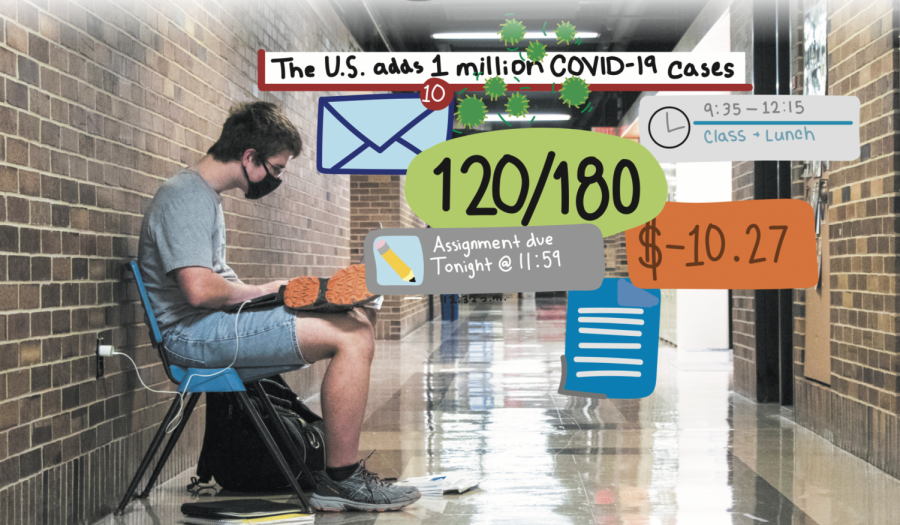Non-stop semesters have increased student burnout
April 13, 2021
The Issue: Students are burnt out and tired after two non-stop semesters. Without fall or spring break, students haven’t been given permission to rest with classes and outside responsibilities piling up.
Our Stance: WKU should have done more for the mental health of their students while focusing so much on their physical health.
WKU is trying its best.
The university is trying to take care of the physical health of students during the pandemic, but students’ mental health has been left behind.
The well-intentioned efforts of the university to keep students on campus and safe from the coronavirus, and from spreading the coronavirus, has resulted in two non-stop semesters. Both fall and spring breaks were canceled. Additionally, what has traditionally been a six-week winter term, turned into a five-week winter term this year.
It’s hard to imagine a student that isn’t beyond exhausted.
Regular semesters are plenty stressful and exhausting. Personal issues from loss to health struggles continue on. No one ever really runs around claiming college is easy. However, regular semesters have a few glorious days where most professors can’t add to the assignment list and students are encouraged to be away from campus, either at home or on vacation.
Many students hit a wall this year when the time for spring break came around and they were still on campus attending lectures and receiving assignments.The closest this campus saw to time off this semester was the days canceled for snow in February, barely a month into the semester.
The most faculty, staff and students received was encouragement from Interim Provost Cheryl Stevens to take the days off from work. This didn’t stop assignments from being in syllabuses and having looming deadlines on Blackboard. It really just felt like a few less days that people were obligated to answer their emails.
This was not exactly the break many had in mind when they imagined time off this spring.
Being stressed out and overwhelmed can cause a variety of responses. People can become exhausted. Their executive function skills may start to go away. Others may have panic attacks or insomnia. People already experienced these symptoms during the work overload last semester. These things show up in people in many subtle ways, but it would be nearly impossible to call any of them good.
Some universities took away spring break and instead implemented mental health days – random days off, often in the middle of the week, for students to rest. Although it seems that many students still just worked the whole day. This idea was presented at a WKU Faculty Senate meeting but was eventually dismissed.
Taking away spring break did not prevent students from traveling.
Plenty still went to the beach for a week or long weekend filled with sun, sand and possibly partying. Students just declared it was time for a break and went.
This, of course, kind of defeats the physical health benefits of trying to keep students on campus as much as possible.
Resources intended for mental health help like the Counseling Center and the college’s emails about dogs on campus aren’t enough to make up for the valuable time off provided by spring break. Getting in with the Counseling Center can often take weeks and not everyone is going to connect with the counselors available. These things don’t address issues like homesickness or simply being overwhelmed by the proximity to campus.
Many will say WKU is trying its best, and in many regards, it probably is. But students’ mental health has fallen to the wayside amid efforts of “doing their best” on other issues. Students’ irregular schedules and more than nine-to-five existence puts a drain on them that continuous school only worsens.
So, did WKU do a lot to make the best out of a difficult year? Yes, it would be incorrect to say otherwise.
But the university should have taken mental health into better consideration when planning for this year.
























